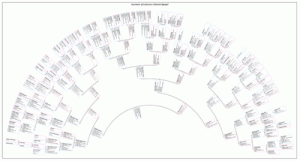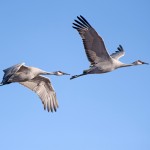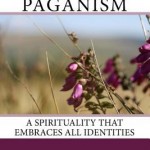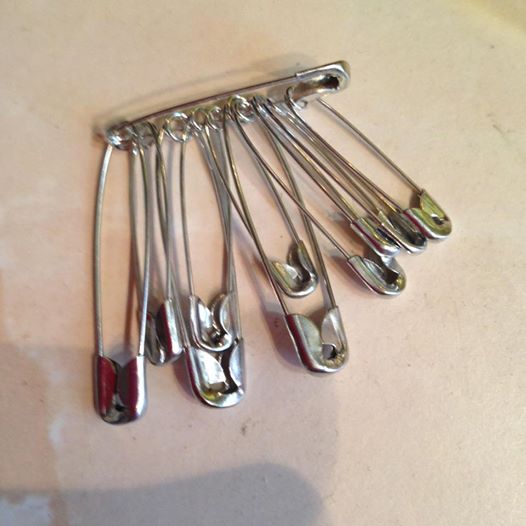Why remember ancestors?
It is good to know where we came from, and to honour those who struggled to give us the freedoms that we have today – freedom to love, live, laugh, and learn.
“To acknowledge our ancestors means we are aware that we did not make ourselves, that the line stretches all the way back, perhaps to God; or to Gods. We remember them because it is an easy thing to forget: that we are not the first to suffer, rebel, fight, love and die. The grace with which we embrace life, in spite of the pain, the sorrow, is always a measure of what has gone before. ”
― Alice Walker
I don’t think we owe it to the ancestors to behave in a certain way, or to live in a particular place ― but we do owe it to them to remember their struggles and their achievements. Without the feminists, queers, Dissenters, Pagans, and many others who struggled for freedom and rights, we would not have those rights and freedoms today.
Ancestors of blood, spirit, and place
What is an ancestor? First, and most obviously, it is someone from whom you are genetically descended. If you go back far enough, of course, your ancestors multiply exponentially and you could be descended from anyone. You can even have your genome mapped now, so you can see where your ancestors came from generations back. Some Druids refer to family ancestors as “ancestors of blood”. Focussing exclusively on “ancestors of blood” can be problematic if your ancestors were in the habit of colonising and subjugating other peoples (which is true for just about everyone who is of European descent).

An ancestor may also be someone from the past whom you admire or feel an affinity with. Perhaps they were an activist for a cause you support (feminism, LGBT rights) or created beautiful art or literature, or made an amazing discovery in the sciences. Some Druids refer to these ancestors as “ancestors of spirit”.
An ancestor may also be someone who lived in the place where you live now (no matter where your family came from originally). Some Druids call these “ancestors of place”. If you are a descendant of people who colonised a region, then the concept of “ancestors of place” needs to be treated with considerable sensitivity. And if you are a descendant of people who were persecuted by the inhabitants of the country where you live, then you might not feel like honouring ancestors of place – though some of them might have been defenders instead of persecutors.
The Beloved Dead
In many forms of witchcraft, including Reclaiming, Feri, and Wicca, there is the concept of honouring witches who have died, especially at Samhain. In Reclaiming and Feri, they are called the Beloved Dead. These may also include non-Craft family members who have died.
Companion animals
Companion animals who have passed on can also be remembered at Samhain. I remember the cats our family had as a child, Shandy and Spicy, and my cat who died in 2011, Harry.
Previous incarnations
If you have a clear idea of who you were in previous incarnations, you could also honour your previous lives as ancestors.
Beliefs about life after death
Most Pagans believe in reincarnation, with a period of rest in the spirit world between incarnations. In Wicca, the region where the dead go is referred to as the Summerlands. Some of the dead are believed to stay in the spirit world to watch over other Wiccans, or their families.
Samhain and ancestors
At Samhain (31 October), many Pagan traditions believe that the veil between the worlds is thin, and that the Beloved Dead can visit this world. Rituals are held for people to connect with the Beloved Dead. This can include putting up pictures of them or creating a shrine for them; reading the names of all those who have died since the last Samhain (this is done by Reclaiming witches); meditating and communing with them; and setting a place for them at the feast.
Every Samhain, I take the opportunity to commune with my friends, fellow witches, and family who have died, and to tell others about their lives. It is a beautiful ritual, and important to remember those who have passed on. There is a saying in the Reclaiming tradition: “What is remembered, lives.”
Jewish remembrance customs
Judaism has some very well-developed remembrance customs for the bereaved, with stages of mourning, and the recitation of the mourners’ Kaddish prayer, and the marking of the Yahrtzeit (the anniversary of the death).
The Yad Vashem remembrance project, “Unto Every Person There is a Name” also attaches considerable importance to remembering and reciting the names of those who died in the Holocaust, and filling in their biographical details.
Patheos Pagan ancestor project
The Patheos Pagan Ancestor Remembrance Project has been set up by Christine Hoff Kraemer, who writes:
My vision for the project is this: Partners get to know each other via e-mail or phone, and the Pagan partner shares a bit about his/her ancestor practice. The two of them together create a practice for October that feels doable for the non-Pagan, which might involve journaling, building a meditation altar of family pictures, researching family stories, visiting a gravesite, or preparing a special meal where family members are honored — there are lots of options, and the Pagan partner is there to help the non-Pagan find something that will work for them.Next, we’d like the partners to do three blog posts about their ancestor remembrance practices and the experience of working together during the month of October. If the practice chosen is ongoing, you might do one post a week; if you choose a one-night event, like a special dinner, the posts might be closer together (reflecting on preparing for the event and the event itself). The partners will link to each other’s posts, and ideally also to the Public Square landing page, which should be up in the second half of October.
I will be working with Aliza Worthington from the Jewish channel, who blogs at The Worthington Post. [update: Her blogpost, about her grandfather, explains her approach to this project.]
My ancestors
I plan to focus on some specific people for my ancestor project. My family member will be my grandpa, Harold James Aburrow. My “ancestor of spirit” is a bit harder to choose – I have an entire Pinterest board of people whom I admire. But I think I will focus on U A Fanthorpe, since I am a poet and so was she. My chosen “ancestor of place” is Thomas Bodley, founder of the Bodleian Library, because libraries are really important, and I used to work there. My chosen Wiccan ancestor is Madge Worthington, founder of the Whitecroft line.
I will remember them by creating a shrine for them in my home, researching their biographies, and visiting their graves (if known). I may not be able to visit their graves during October, but I will try to do so during the next year. I will also hold either an ancestor ritual or a dumb supper.
















